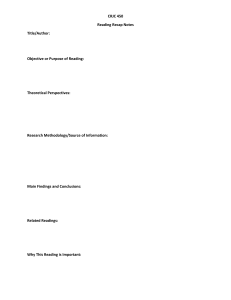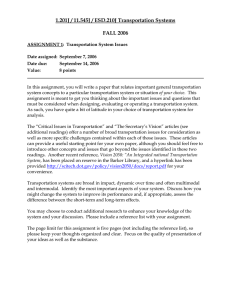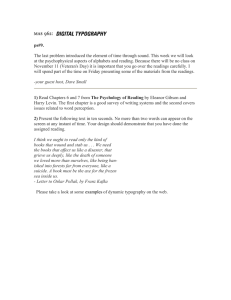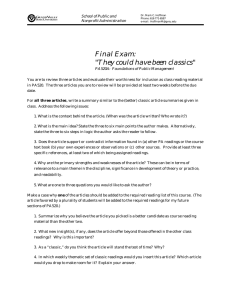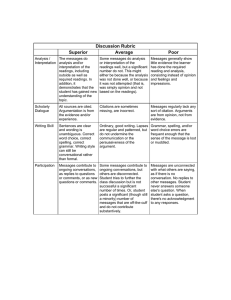Theory Presentations
advertisement
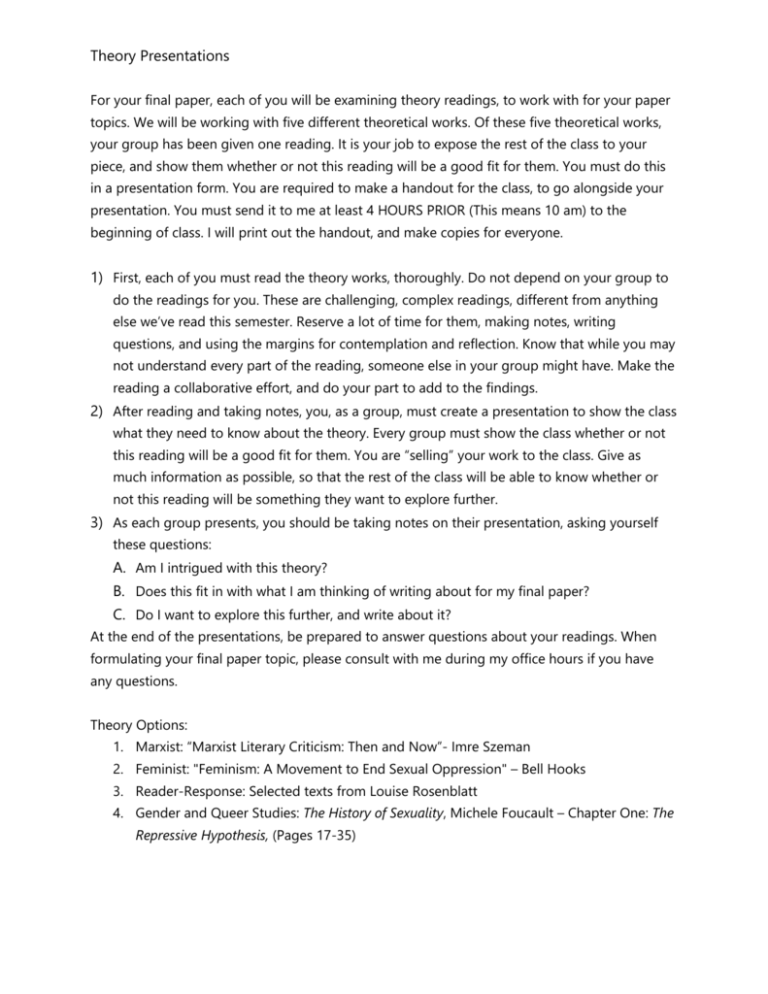
Theory Presentations For your final paper, each of you will be examining theory readings, to work with for your paper topics. We will be working with five different theoretical works. Of these five theoretical works, your group has been given one reading. It is your job to expose the rest of the class to your piece, and show them whether or not this reading will be a good fit for them. You must do this in a presentation form. You are required to make a handout for the class, to go alongside your presentation. You must send it to me at least 4 HOURS PRIOR (This means 10 am) to the beginning of class. I will print out the handout, and make copies for everyone. 1) First, each of you must read the theory works, thoroughly. Do not depend on your group to do the readings for you. These are challenging, complex readings, different from anything else we’ve read this semester. Reserve a lot of time for them, making notes, writing questions, and using the margins for contemplation and reflection. Know that while you may not understand every part of the reading, someone else in your group might have. Make the reading a collaborative effort, and do your part to add to the findings. 2) After reading and taking notes, you, as a group, must create a presentation to show the class what they need to know about the theory. Every group must show the class whether or not this reading will be a good fit for them. You are “selling” your work to the class. Give as much information as possible, so that the rest of the class will be able to know whether or not this reading will be something they want to explore further. 3) As each group presents, you should be taking notes on their presentation, asking yourself these questions: A. Am I intrigued with this theory? B. Does this fit in with what I am thinking of writing about for my final paper? C. Do I want to explore this further, and write about it? At the end of the presentations, be prepared to answer questions about your readings. When formulating your final paper topic, please consult with me during my office hours if you have any questions. Theory Options: 1. Marxist: “Marxist Literary Criticism: Then and Now”- Imre Szeman 2. Feminist: "Feminism: A Movement to End Sexual Oppression" – Bell Hooks 3. Reader-Response: Selected texts from Louise Rosenblatt 4. Gender and Queer Studies: The History of Sexuality, Michele Foucault – Chapter One: The Repressive Hypothesis, (Pages 17-35)
